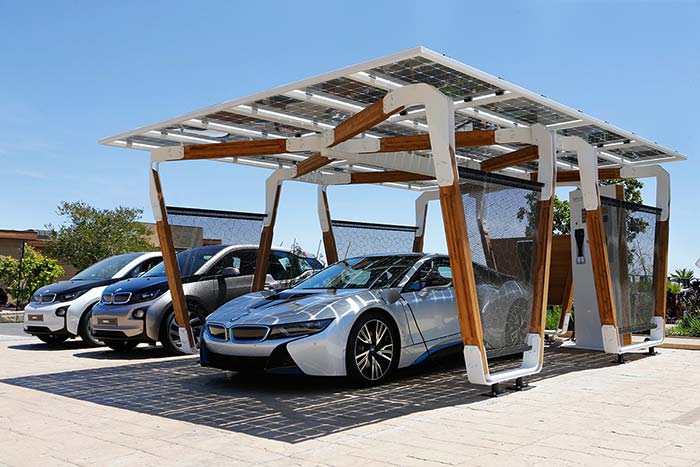12 February 2016
Driving forces behind future sustainable environments
While the severity of climate change often brings a heated debate, most everyone agrees that something needs to be done about traffic congestion — especially here in Southern California.
The fact of the matter is the environment and traffic are inextricably linked.
Because of that, sustainability initiatives and transportation planning are often becoming one in the same.
Peder Norby, a San Diego County planning commissioner and an electric vehicle pioneer, believes we are set to revolutionize how people get around. If planned correctly, such changes could significantly impact both quality of life and the environment.
“Dynamic change, it’s not a fad,” Norby said.
Citizens — locally and globally — are demanding better plans from community leaders that allow investment to simultaneously stimulate economy and healthy environments, offering prosperity to both current and future communities.
More recently, urgency to establish international investment took global spotlight during the United Nations Conference on Climate Change in Paris. World leaders agreed to make substantial efforts to gradually stop using the most polluting fossil fuels.
On a local level, San Diego’s regional plan, “Forward,” embraces similar goals established in Paris, detailing strategies that aim to ensure any choice made now does not jeopardize quality of living going forward.
Norby is responsible for helping draft the renewable energy master plan for San Diego County and is an advocate for a dramatic shift in transportation modes. This rethinking goes beyond electric vehicles and seeks out alternative infrastructure solutions that are designed to make sustainable living a true reality.
Such reality could bring a future filled with ride-share services like Zipcar, gas-powered bike share programs and safer bike paths.
Still, when asked if current renewable energy-sourced initiatives focus on the right goals, Norby has a clear-cut answer — no.
According to Norby, in San Diego County alone, vehicular transportation produces more greenhouse gas emissions than pollution produced from an electrical grid. He believes strictly focusing on one aspect of environmental improvements, such as solar, does not address more pressing issues that produce higher amounts of pollution. Additionally, he says, such singular strategies minimize efforts to make the necessary improvements to the interior efficiencies of buildings.
Instead of a narrow approach, Norby believes planning should be reprioritized and discourages building more or expanding farther.
Norby says the focus should remain on techniques that “create better recipes instead of just more cooking,” bringing greater innovation to the already developed transportation infrastructure, rather than throwing away what San Diego has built during the past 100 years and starting over.
Norby’s basic recipe for the future would include:
-
Transportation fleets shifted to electric
-
Multi-modal land use planning
-
Equitable energy grid creation
-
Energy independence at 100 percent
-
Transition to 100 percent renewable energy
Norby says these changes were inspired not only because of his hope for a more environmentally sustainable future, but because he is also a parent who would have rather spent time coaching his son’s little league team than sitting in traffic.
The best way to curb traffic is “relocalization,” which it the opposite of urban sprawl, Norby says. This concept is a departure from suburban tract housing development that continually forces people into cars and requires more inner city land to be zoned for parking.
Supported by Norby and several other community leaders, UC San Diego Extension has grown and developed its Environment and Sustainability portfolio. The transportation topic will be addressed in the new course “Fundamentals of Sustainable Transportation” being offered in spring 2016.
For more information, call (858) 534-9351 or email unex-environmental@ucsd.edu.

BMW Group DesignworksUSA has developed a solar carport, a concept that aligns as part of its holistic sustainable transportation approach. Solar-powered electricity generation gives a further boost to vehicle life cycle assessment. The plug-in hybrid sports car line-up includes some of the world’s first premium automobiles designed for zero-emissions mobility. (BMW Group PressClub USA photo)